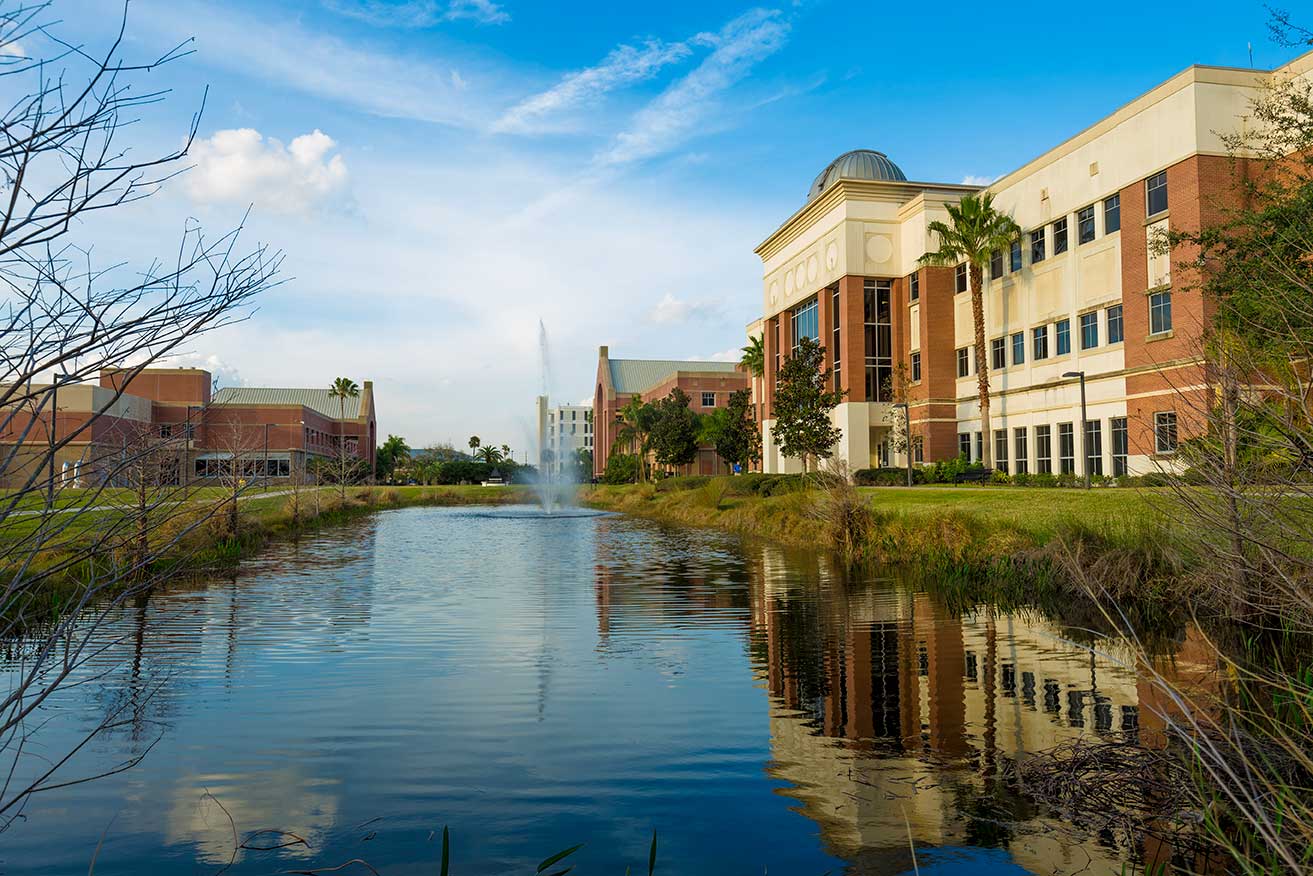Revised: April, 2025
The small boats are to be used for faculty approved research and teaching in the Indian River Lagoon, Lake Washington, and adjacent waterways. Any graduate student, faculty member or research technician/engineer anticipating the need for a small boat for teaching or research work must first be certified through the Florida Tech procedures and he or she MUST have completed a safe boating course. Those offered by the Power Squadron or Coast Guard Auxiliary are preferred. Online courses, such as those offered at boat-ed.com, are no longer acceptable. This is to allow for safe, effective use of vessels and ensure reasonable care of school equipment.
Reservations
To reserve a small boat, contact Tim Fletcher (321-674-8930 / tfletcher@fit.edu) or Dave Beach (321-271-0834/ dbeach@fit.edu) to check on boat availability at least one week in advance. You must fill out a Small Boat Request form, have it approved by your faculty advisor or proper authorized person and present it to the Marine Operations Office located at the Anchorage facility prior to your trip.
Supplies
You may gain access to the small boat supplies on the day of your trip or on Friday (for weekend trips) by obtaining the key from the Marine Operations Office during work hours (Monday through Friday, 8 a.m. to 5 p.m.).
Should your work involve the handling of nets (otter, trawl, plankton or seine), your boat must display a Florida Tech sign and you will need to have on board an appropriate permit authorizing your activities. You are also required to have on board a chart of the area being navigated, a GPS receiver and a cellular telephone.
Users are required to provide fuel. Most of the 2 stroke models are equipped with Evinrude ETEC 2 stroke engines and require XD-100 2 stroke oil ONLY to be poured into separate, on board oil tanks. Marine Operations will ensure an adequate supply of XD-100 is on board prior to your trip. Failure to use the proper oil with Evinrude ETEC equipped models will result in catastrophic engine failure and costly repairs. For Suzuki models, Amsoil SAE 10W-40 must be used.
Each boat is equipped with enough life jackets (one per person) to meet the USCG maximum occupancy rating, fire extinguishers, anchors with rode (line), first aid kits, oars (one required per boat), flares/signal kits, whistles, vessel registration and throwable (type 4) PFDs. Lights are also to be carried and used after dark, or in restricted visibility (rain, fog, etc).
General Operating Procedures
If the destination is of some distance, it is more practical to trailer your boat to your site. Procedures for pulling trailers will be covered during your check-out. When the boat is to be trailered, it should not be loaded with gear and speed should not exceed 50 mph.
The gas tank should be placed in the bottom of the boat near the rear seat. Ensure that the fuel line is securely engaged to the fuel connector fitting. To lower the engine from the tilted position on manual tilt models, you must push the tilt-run lever into the run position; pull the engine up to unlock and then lower into the water. Leave the tilt-run lever in the run position while operating your boat. When operating at slow speeds in shallow waters, the tilt-run lever should be lifted into the tilt position. This reduces engine damage in the event of grounding.
Before starting the engine, set the shift arm in the vertical-neutral position. Squeeze the bulb on the gas line until gas will no longer pump freely (do not over-squeeze). Connect safety shut off lanyard, lower the engine into the water and turn the key. Lower the engine into the water and turn the key. Allow the engine to warm up. Be particularly alert in Crane Creek for manatees, and observe the no-wake law inside Melbourne Harbor .
Safety
Adherence to the small boat safety program is mandatory. Life jackets can be stored underneath the seat during your trip. You are required to have one Type-I life preserver for each passenger and one Type-IV life preserver for each boat, it is your responsibility to ensure they are onboard prior to departure. Do not use them as seat cushions. The anchor line can be attached to the forward bow cleat. The fire extinguishers and flares should be stored securely. Vessel registration forms and whistles are located in the dry box on each vessel.
No small boat are to go out when small craft are cautioned to stay in port (small craft advisories).
Emergency
In the event of an accident or injury, render required first aid on the scene (first-aid kit located onboard), and secure professional medical attention as needed. Any such incident is to be reported immediately to the Marine Operations Office (321-727-7930), or Florida Tech Security Office (321-674-8111).
Mechanical Problems
A general troubleshooting guide is located onboard each vessel.
Any mechanical or equipment problems are to be reported to the Marine Operations Manager directly or on the Comments/Report section of the Check out form after returning.
Insurance
Florida Tech's liability insurance covers Florida Tech-certified small boat operations while operating properly equipped boats, in compliance with State and Federal regulations. Negligent or reckless operation may void that coverage and, without question, leave the operator open to personal liability.
Additional Information
It is our intention to support the research and teaching needs of students and faculty to the greatest reasonable degree. Safe, efficient operation will require cooperation, observance of Federal and State Law, and recognition of the potential for disaster involved in marine operations. Failure to follow these guidelines or to exercise prudence may result in the loss of boating privileges.
Remember, absolutely no alcohol or drugs are ever allowed!
Cellphones must be carried aboard at all time. No Exceptions!
Good Boating!
Captain Tim Fletcher, Director of Marine and Outdoor Operations

 Give to Florida Tech
Give to Florida Tech 